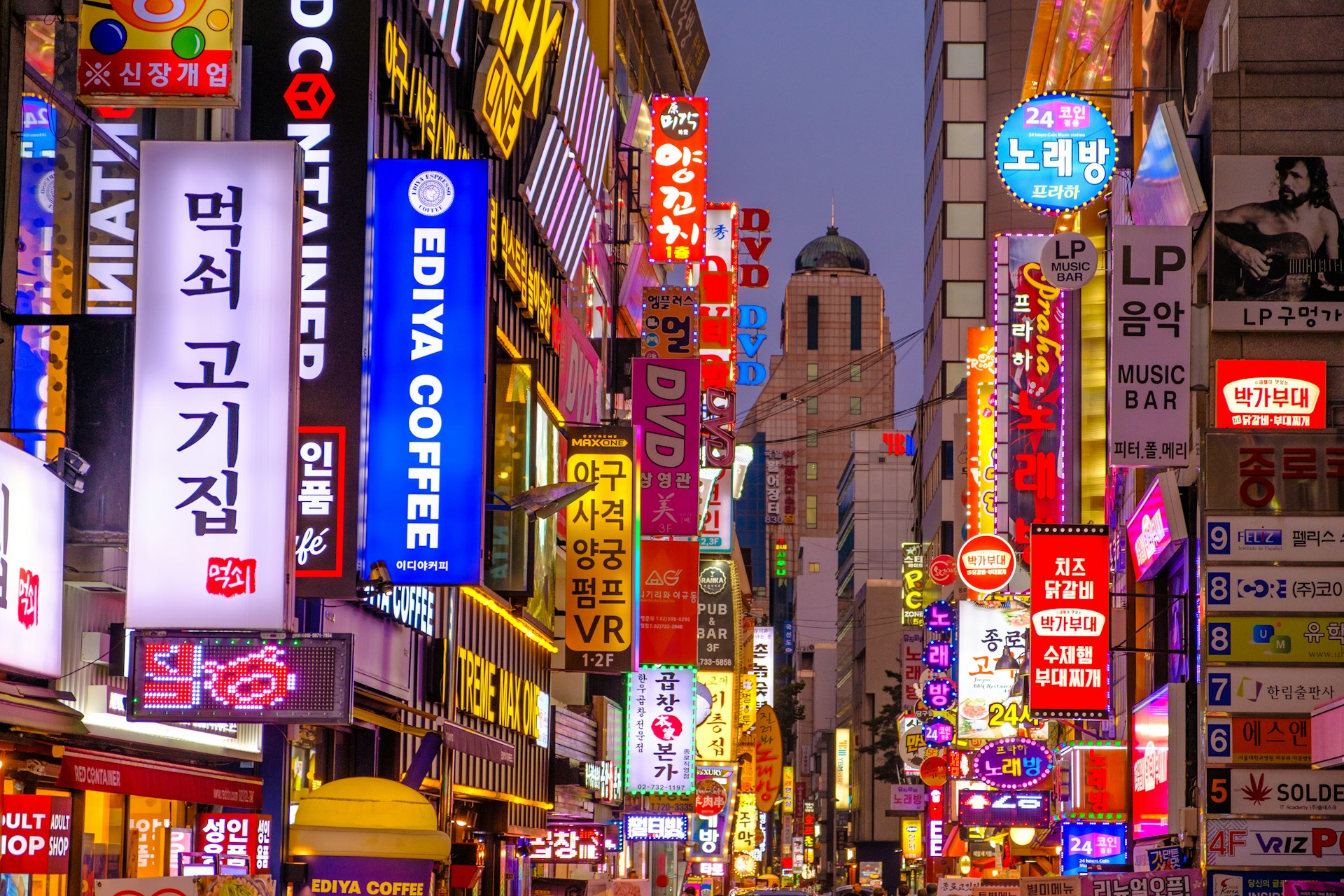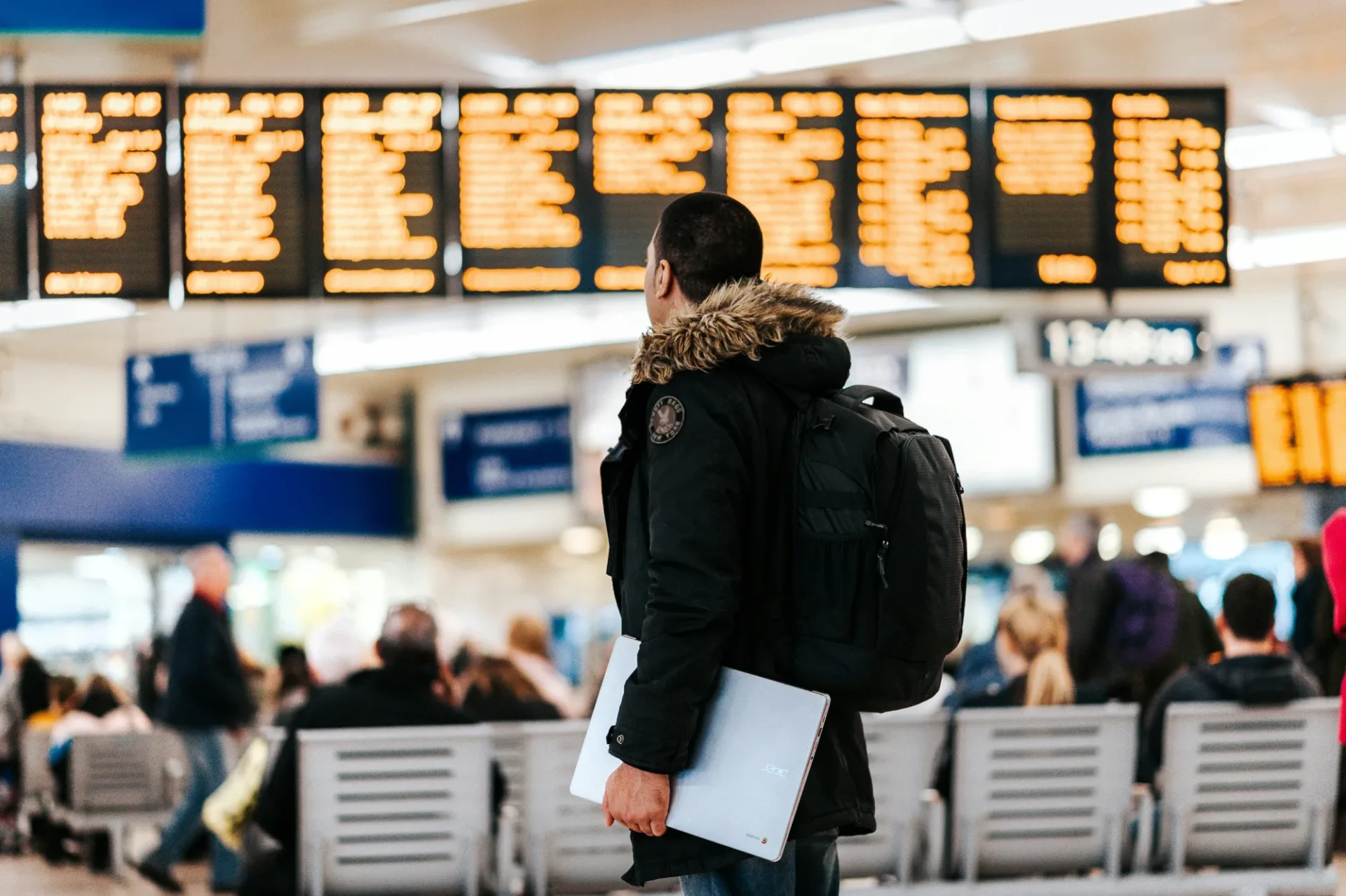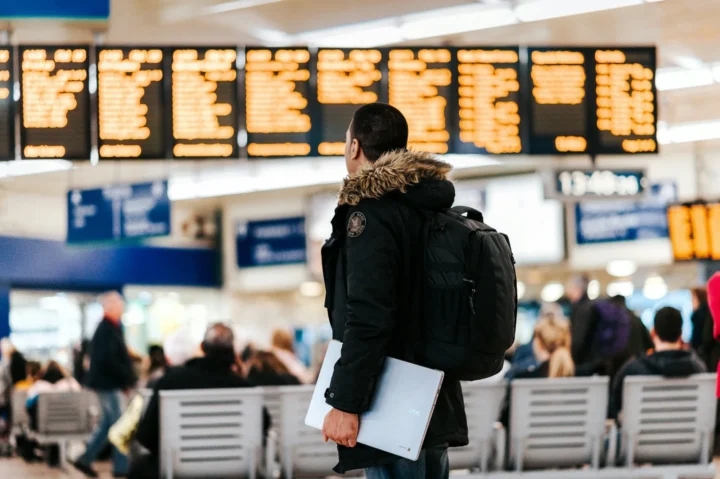Every year, millions of English-speaking travelers wonder the same thing before visiting South Korea: “Will I be able to communicate and get by without speaking Korean?”
Let’s bust a common myth right away: you don’t need to be fluent in Korean to enjoy South Korea. Yes, it helps, but English has become surprisingly prevalent in recent years, especially among younger generations and in major cities like Seoul and Busan.
Here’s the reality of navigating South Korea as an English speaker in 2025.
Who Speaks English in South Korea?
English proficiency in South Korea varies significantly by age, profession, and location. According to the 2024 EF English Proficiency Index, South Korea ranks 50th globally with a “moderate” proficiency level.
Younger Generations

South Koreans under 30, particularly in urban areas like Seoul, often speak conversational English. This is due to mandatory English education starting in elementary school and consuming English-language content through streaming platforms, social media, and international gaming communities.
International exchange programs and travel also encourage young Koreans to practice English with native speakers. This constant exposure creates a generation that thinks bilingually and can switch between Korean and English with relative ease.
Middle Generation
South Koreans aged 30–50 fall between the younger and older generations in English proficiency, with varied skills depending on their education and career.
Many in this age group studied English in school during the 1990s, when South Korea began focusing on globalization, and can handle basic English conversations, especially professionals in urban areas like Seoul or Busan. Those in white-collar jobs, such as tech, finance, or international trade, often use English regularly for work emails, meetings, or client interactions. However, those in non-international roles, like small business owners or local government workers, generally have very limited or no English skills.
Many parents in this age group encourage their children to learn English and may attend English classes themselves to keep up or assist with their kids’ studies.
Older Generations
South Koreans over 50 are less likely to speak English fluently, as English education wasn’t widespread during their school years. However, this doesn’t mean communication is impossible.
Many older Koreans show remarkable patience and creativity when helping foreign visitors, often using:
- Hand gestures and visual cues
- Simple Korean words spoken slowly
- Written numbers for prices and addresses
- Translation apps on their smartphones
- Assistance from younger family members or colleagues
For example, a street vendor might use a calculator to show prices or point to a translated menu to assist you.
Service Industry Professionals
Service industry workers in South Korea’s biggest cities frequently use English to cater to international visitors.
In major tourist areas in Seoul, like Myeongdong and Itaewon, you’ll typically encounter English-speaking staff at:
- Hotels and guesthouses (front desk, concierge services)
- Restaurants in tourist districts (servers, managers)
- Shopping centers and department stores (customer service, information desks)
- Tourist attractions and museums (tour guides, ticket counters)
- Transportation hubs (airport staff, subway information centers)
Many hospitality workers now receive specialized English training programs, particularly in response to the growing number of international tourists drawn by Korean pop culture.
Why Does English Proficiency Vary?
The generational divide stems from South Korea’s rapid modernization and educational reforms.
Since the 1990s, English has been a core subject in schools, driven by globalization and the need for international competitiveness. On top of that, younger Koreans are immersed in English through social media, gaming, and global entertainment, while older generations have limited English exposure and, therefore, no or very limited English skills.
That said, this generational gap is closing as more older Koreans take community English classes to connect with tourists or younger family members.
English in Seoul: A Cosmopolitan Hub

Seoul, South Korea’s vibrant capital, is the most English-friendly city in the country. According to 2024 regional data, Seoul scored the highest among all South Korean cities on the English Proficiency Index.
Which Areas of Seoul are Most English-Friendly?
Seoul’s cosmopolitan nature creates pockets of high English proficiency throughout the city, particularly in areas with significant international populations.
Highly English-accessible areas include:
- Gangnam District: International business hub with global corporate presence.
- Itaewon: Historical international district with foreign restaurants and services.
- Hongdae: University area popular with international students and English teachers.
- Myeongdong: Primary shopping district targeting international tourists.
- Jongno: Central area with major tourist attractions and government offices.
Moderate English accessibility areas include:
- Sinchon: Student-friendly area with affordable dining and entertainment.
- Apgujeong: Upscale shopping district with luxury international brands.
- Yeouido: Financial district with multinational corporations.
Less English-friendly areas include suburban neighborhoods like Nowon or Gwanak, where locals rely more on Korean. However, translation apps and gestures work well even in these areas.
Tourist Attractions with English Support
Major Seoul attractions provide comprehensive English services, including:
- Gyeongbokgung Palace: English-guided tours and multilingual signage.
- N Seoul Tower: English-speaking staff and international visitor services.
- War Memorial of Korea: Detailed English exhibit descriptions.
- Dongdaemun Design Plaza: International fashion events with English programming.
- Bukchon Hanok Village: English information centers and guided walking tours.
How Important is English in Korean Schools?
English education in South Korea represents one of the most intensive foreign language programs globally.
Here’s how it’s structured:
- Elementary School: Introduces basic vocabulary and phrases, often through interactive games and songs.
- Middle School: Focuses on grammar, reading, and writing to build foundational skills.
- High School: Prepares students for the College Scholastic Ability Test (CSAT), which includes a rigorous English section.
Private English Education: The Hagwon System
South Korea’s private education sector, known as the hagwon system, supplements public school English instruction with intensive after-school programs. These institutions employ thousands of native English-speaking teachers from countries like the United States, Canada, Australia, and the United Kingdom.
Approximately 43,000 foreign English teachers work in South Korea. Most are employed through government programs like EPIK (English Program in Korea) and TALK (Teach and Learn in Korea). Hagwons are popular because parents invest heavily in English to help their kids compete in global job markets.
Essential Korean Phrases and Communication Tips for Travelers

Here are some tips that will significantly improve your interactions with locals and demonstrate cultural respect, especially in rural areas or small towns where English is less common.
Must-Know Korean Phrases for Tourists
Basic greetings and courtesy:
- Hello: Annyeonghaseyo (안녕하세요)
- Thank you: Gamsahamnida (감사합니다)
- Excuse me: Sillehamnida (실례합니다)
- Sorry: Joesonghamnida (죄송합니다)
- Goodbye: Annyeonghi gaseyo (안녕히 가세요)
Practical travel phrases:
- Do you speak English? Yeong-eo jal haseyo? (영어 잘하세요?)
- How much is this? Eolmayeyo? (얼마예요?)
- Where is the bathroom? Hwajangsil-i eodieyeyo? (화장실이 어디예요?)
- I don’t understand: Ihaega an dwaeyo (이해가 안 돼요)
- Please help me: Dowajuseyo (도와주세요)
Cultural tip: Always use polite endings like “-yo” or “-hamnida” when speaking to strangers, as politeness is highly valued in Korean culture.
Use Translation Apps
Naver Papago:
- Developed specifically for Korean-English translation
- Superior accuracy for Korean language nuances
- Real-time conversation feature
- Offline translation capabilities
Google Translate:
- Camera translation for signs and menus
- Voice translation for spoken conversations
- Wide language support for multiple tourists
- Integration with Google Maps and other services
Translation app best practices:
- Download offline language packs before traveling
- Use simple, clear sentences for better accuracy
- Verify important translations with multiple sources
- Combine apps with gestures and visual cues for clarity
FAQs: English in South Korea
How common is English in South Korea?
English proficiency varies significantly by age group and location. Young people (under 30) and service industry workers in major cities like Seoul often speak conversational English, while older generations typically have limited English skills.
Can I travel to South Korea without speaking Korean?
Yes, you can travel to South Korea without speaking Korean, especially in Seoul and other major tourist destinations. However, learning basic phrases and using translation apps will greatly improve your experience and help in less touristy areas.
What percentage of South Koreans speak English?
While exact percentages vary by study, approximately 20-30% of South Koreans have functional English skills, with higher concentrations among younger demographics and urban populations.
Is Seoul English-friendly?
Seoul is relatively English-friendly compared to other South Korean cities, with English signage in subway systems, tourist areas, and major attractions. Hotel staff, restaurant workers in international districts, and younger locals often speak English.
Do Korean schools teach English?
Yes, English is mandatory in Korean schools from elementary through high school. Students also take English sections on university entrance exams, making it a critical subject for academic success.
How can I communicate in South Korea if I don’t speak Korean?
Use translation apps (Naver Papago, Google Translate), learn basic Korean phrases, carry a phrasebook, use gestures and visual cues, and seek help from younger locals who are more likely to speak English.
Are there English-speaking tour guides in South Korea?
Major tourist attractions in Seoul and other cities offer English-speaking tour guides. You can also book private English-speaking guides through travel agencies or online platforms.
Conclusion
South Korea is welcoming for English speakers, especially in Seoul’s tourist-friendly areas. Young Koreans, service workers, and strong English education make communication easy, while apps and basic phrases help in less English-friendly spots.
By learning a few phrases, using translation tools, and respecting local customs, you’ll have a richer experience exploring South Korea’s culture. So, pack your bags, download Naver Papago, and get ready for an unforgettable adventure!
Sources


